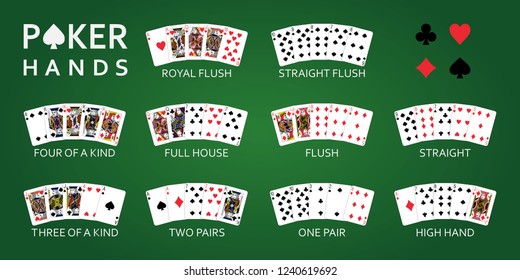
You’ve probably heard of forced bets in poker, but you don’t really know what they mean. You’ve also likely heard about betting intervals, limits in pot-limit games, and other terms that may confuse you. In this article, we’ll explain some of the more commonly used poker terms and definitions. Learn what they mean and how they work in practice. After reading this article, you’ll have no problem navigating the poker world!
Common poker terms
To become a successful poker player, you must understand the various lingo and terminology used in the game. These terms are used by both new and seasoned players. In poker, these terms refer to all types of bets, raises, and other actions that occur during a hand. The terms are also used by the dealer to indicate players’ actions. This guide will help you become a master of poker slang. Listed below are the most common poker terms.
Rules
Poker is a card game played with players who each have five cards. The value of a poker hand is inversely proportional to its mathematical frequency. Players may make a bet when they believe they have the best hand and must wait until the other players make bets in order to win the pot. Bluffing is an important part of poker and can make you the winner. However, it’s important to remember that bluffing does not always work.
Betting intervals
Poker betting intervals vary by type of game. The first player to act makes a bet and then each player to his left raises their bet proportionally until no one is left. During this time, the player must remain active and raise only when he has a stronger poker hand than his opponents’. The betting interval for most poker games ranges from two to five chips. Some poker games have no betting interval at all.
Limits in pot-limit games
If you’re new to poker, you’re probably wondering what limits in pot-limit games mean. The most basic way to understand pot-limit games is to look at a sample hand. Basically, you can only place bets within a single governing limit per street. In tournaments, players start small and increase their stakes as they go along. However, if you’re new to poker, you’ll find that there are a lot of nuances to learn and master.
Bluffing
Although most poker players don’t intentionally bluff, it is important to use the opportunity presented to you in order to improve your position. Bluffing is best used from late position, such as the small blind, cutoff, or button, as the action will usually fold if you don’t have the best hand. Bluffing is more effective in tournament play, as your opponents will be more apt to fold when you have an excellent hand.